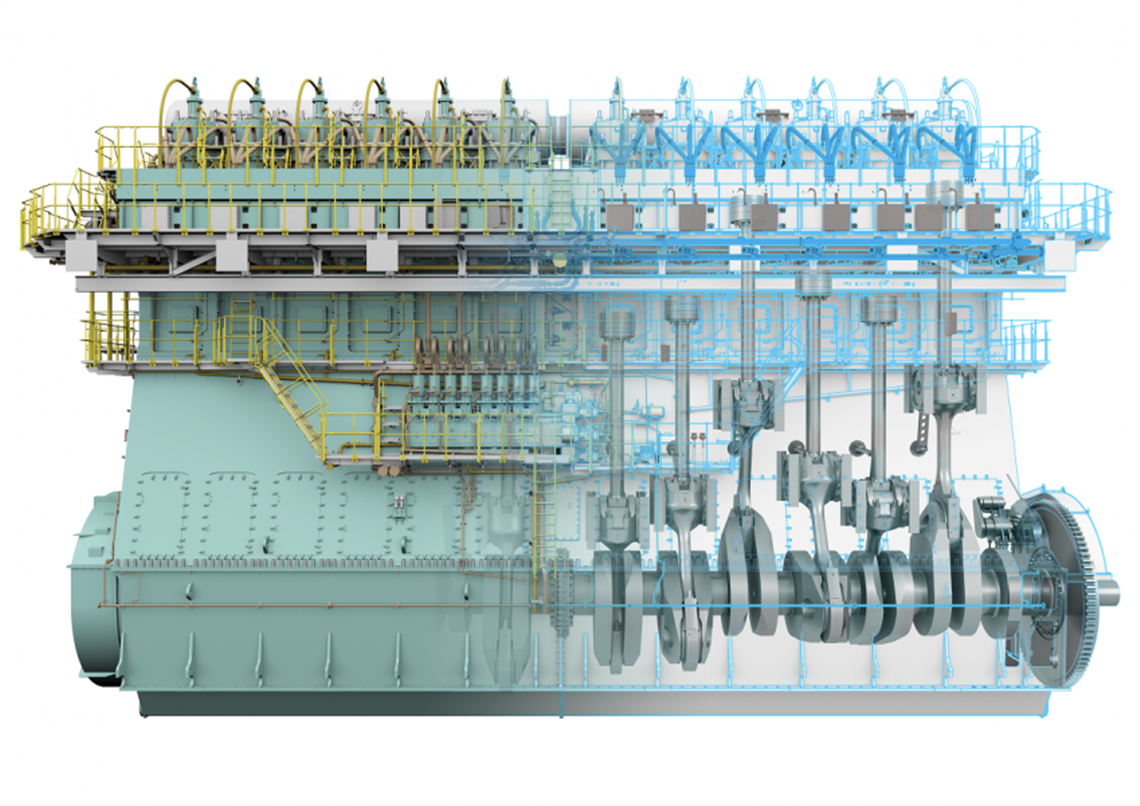WinGD Offers New Cylinder Lubrication Guide
14 July 2020

WinGD said its new cylinder lubrication guide prioritizes collaboration and transparency in an effort to ensure selection of the right oil.
The new documentation provides ship operators with consolidated, at-a-glance information highlighting the specific usage conditions for each and every approved cylinder oil, the company said.
WinGD said the guidance is the result of several months’ work with major oil companies to make usage requirements more transparent. Previously, the guidelines for each oil were found only in the industry standard No Objection Letters (NOL) issued by WinGD to oil companies, and available only upon request by a customer to an oil company directly. Now this information has been included in the full list of approved cylinder oils.
To find an appropriate cylinder oil, users first select a suitable Base Number (BN) range based on their fuel sulfur content. Customers then look through the guide to see which oil products fall within a specified BN range. The document then highlights whether each oil is approved for general, long-term use or whether further stipulations—such as a time limit or greater frequency of inspections—are required. An additional category, labeled as ‘DF validated’ shows whether the oil has passed a validation trial while burning gas as the predominant fuel during that trial.
“Cylinder oil is not just another consumable onboard—it’s considered an important engine component that ensures reliable operation,” said Frank Venter, WinGD Project Engineer Tribology Fuels & Lubricants. “Given the already wide variability in existing fuels available, it is important that engine companies and oil suppliers work together to offer clarity for ship operators about which oils can be used and how. This will become increasingly important as we embrace a decarbonized future with potentially multiple varied sources of both liquid and gaseous fuels.”
The development follows extensive work with oil majors in the run-up to 2020 to ensure that cylinder oils could meet the challenges of new fuel types, WinGD said. The engine designer’s well-established validation procedure has identified many cylinder oils with a broad spectrum of properties (including BN) which are fit for operation with both low and high-sulfur fuels as well as for gas fuel operation.
The correct use of appropriate cylinder oil completes WinGD’s tribological design concept, the company said. Its engines feature state-of-the-art cylinder lubrication systems combined with unique cylinder liner, piston and piston ring designs. These improve reliability and enable a long time between overhaul for combustion chamber components, ultimately resulting in more predictable and lower cost engine maintenance, according to the company.
STAY CONNECTED




Receive the information you need when you need it through our world-leading magazines, newsletters and daily briefings.
POWER SOURCING GUIDE
The trusted reference and buyer’s guide for 83 years
The original “desktop search engine,” guiding nearly 10,000 users in more than 90 countries it is the primary reference for specifications and details on all the components that go into engine systems.
Visit Now
CONNECT WITH THE TEAM









